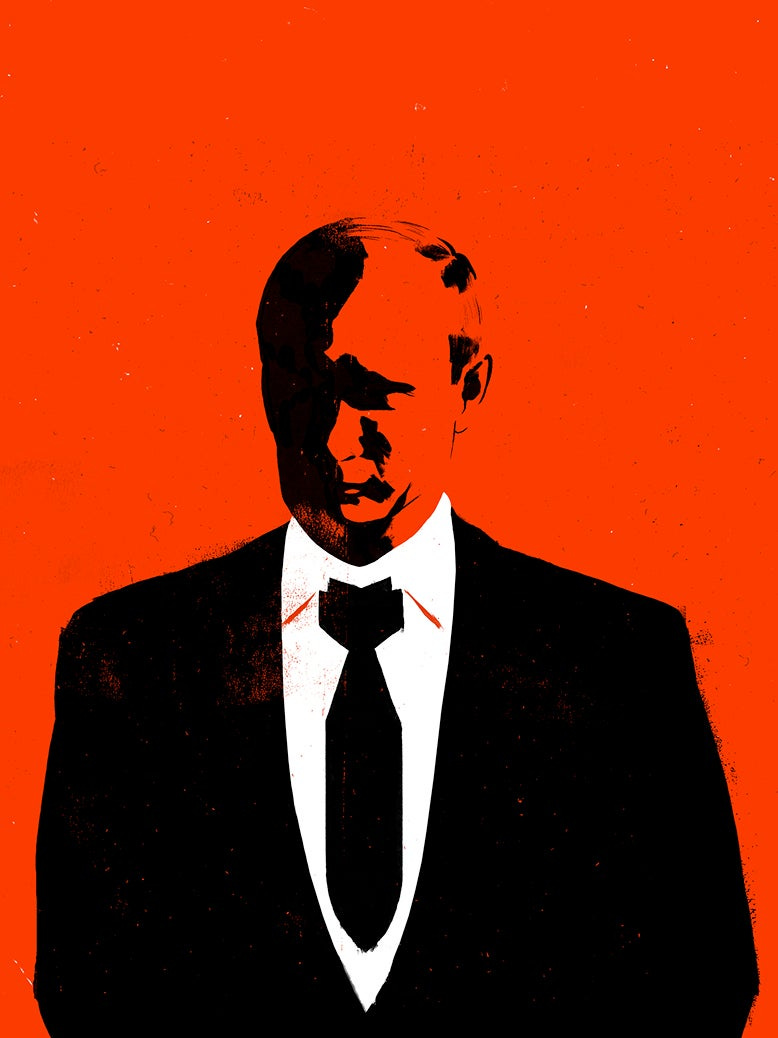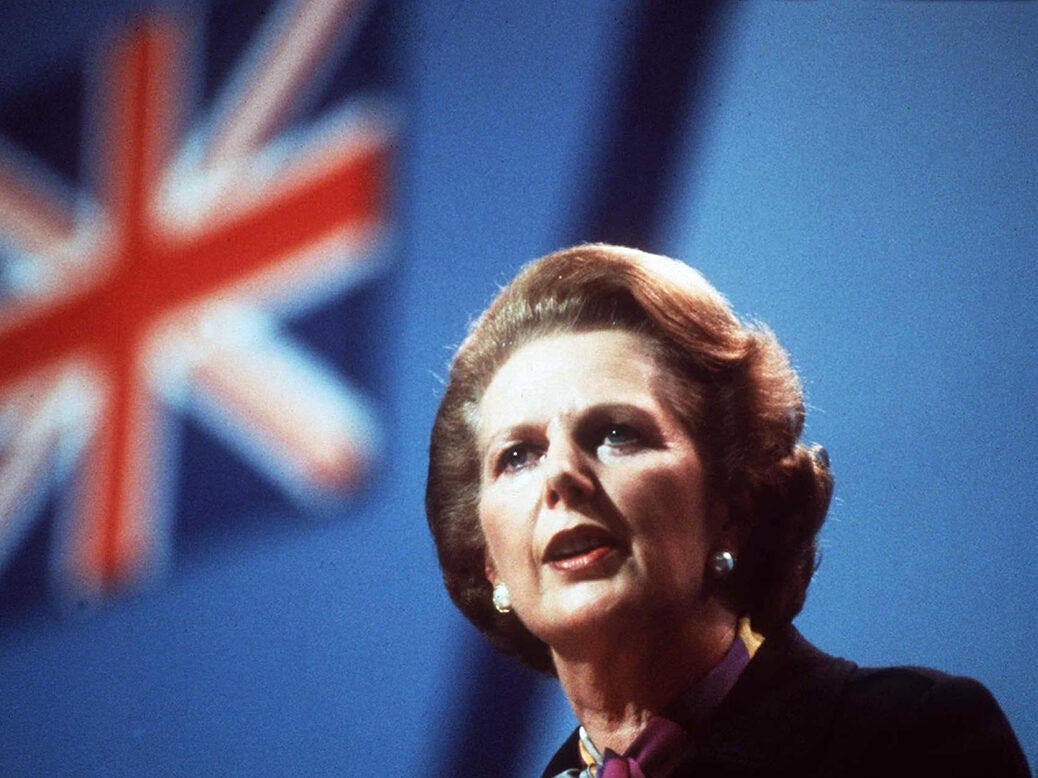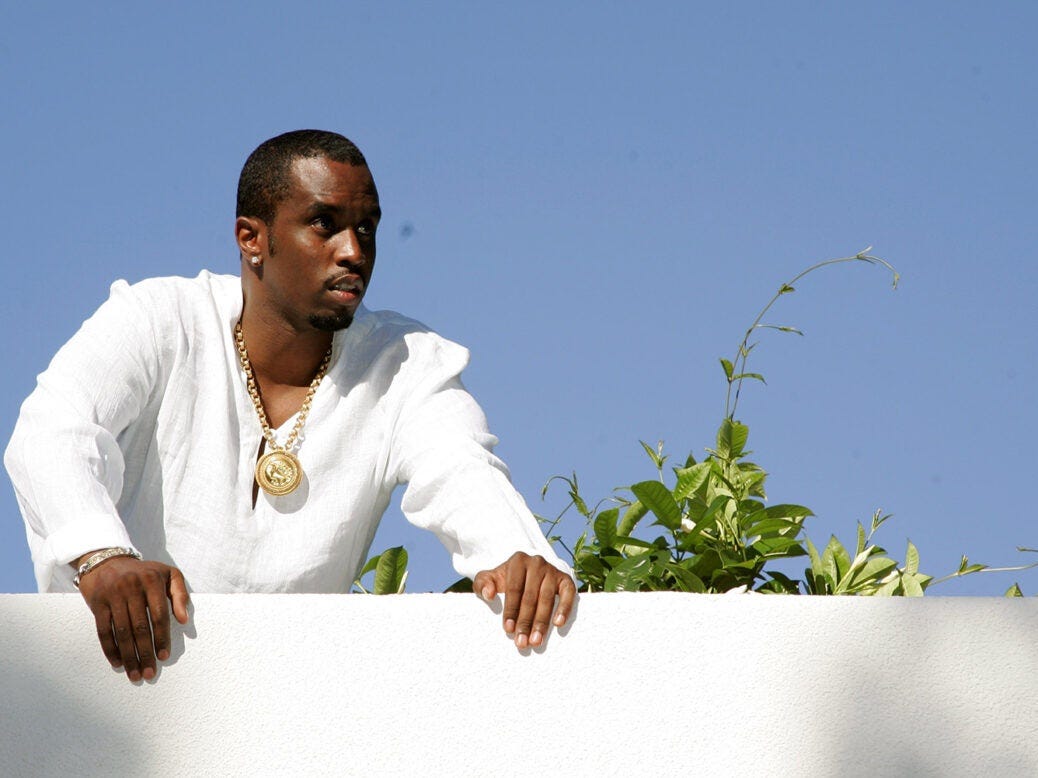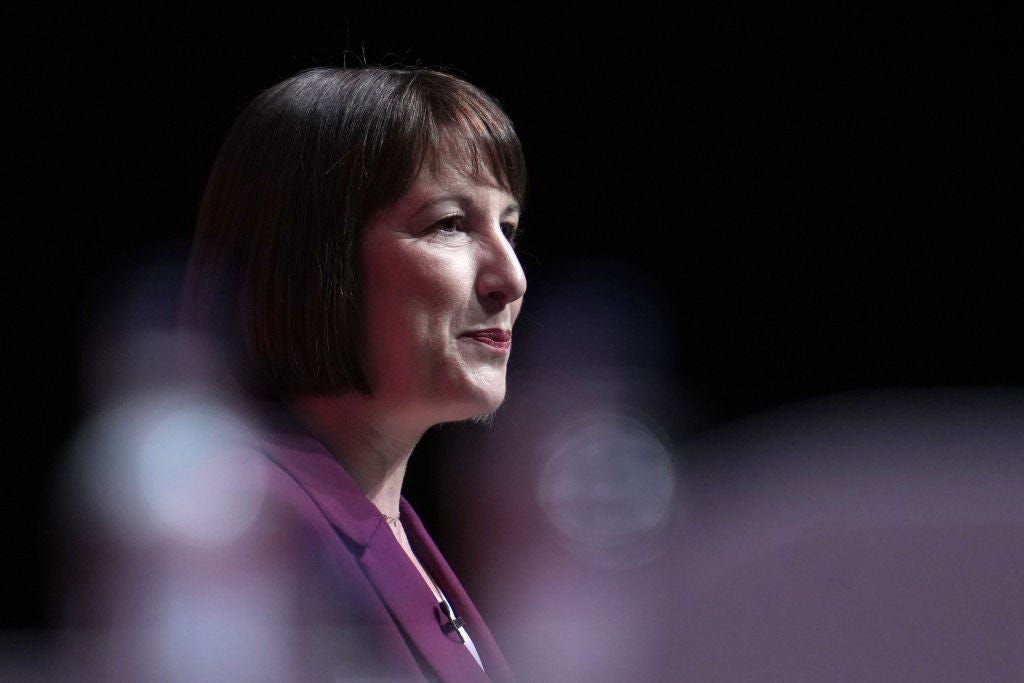The Saturday Read: Ranks of the state
Inside: Morgan McSweeney, 25 years of Fight Club, P Diddy, Charli XCX, Andrew Marr on the Budget, and Putin's war economy.
Good morning. Welcome to the Saturday Read, the New Statesman’s guide to politics, culture, books, and ideas. This is Jason, together with Finn, Nicholas, Pippa and George.
Keir Starmer’s remarkable general election victory – remarkable because in one term, and four and a half years, Labour went from its worst defeat since 1935 to a Commons majority of 174 – was from the start described as a “loveless landslide”. Labour’s vote share was only 33.7 per cent – much lower than predicted. Forty per cent of the electorate did not bother to vote on 4 July. Of those who did more than four million opted for Nigel Farage’s Reform, an insurgent national populist outfit that returned only five MPs but under a system of proportion representation (favoured by so many progressives and liberals) would have won perhaps as many as 90 seats. The Liberal Democrats surged to 72 seats while winning little more than 3.5 million votes.
Labour understood that the mood in the country was sour and suspicious. Too many promises had been made and broken by successive governments. Promises have value only for those who believe in them, as the saying goes. Trust in British politics and elected politicians was at an all-time low, according to a National Centre for Social Research report published in June.
Today, Saturday 12 October, is Labour’s 100th day in power – always a resonant number in politics for a new government. Starmer entered Downing Street promising stability, change and a new moral purpose. Where are we now? Well, after various scandals over the receipt of freebies and prolonged feuding inside No 10, Starmer’s self-described government of service is being routinely mocked as a “government of self-service” in the media. That will anger and fire the moral indignation of Labour’s lawyer-leader who demands integrity and probity in public life.
In recent days, Sue Gray has been ousted as Starmer’s chief of staff after No 10 descended into factionalism and dysfunction. Her departure has not been lamented. And over the last 100 days we have had a lot of pronouncements and policy initiatives, but the government has no overarching narrative or apparent sense of purpose that links everything together. There is drift, a sense of randomness even, the void. The appointment of Morgan McSweeney, a brilliant strategist, as the new chief of staff should change that. He is not only good at politics he has his own distinctive politics. You could call him a kind of conservative social democrat who believes in a politics of the common good and a government that operates in the interests of Labour’s fabled “working people”. He has a big job to do now – because Labour had a strategy to be elected but not, as it turned out, for government. Instincts and good intentions – and not being the Tories at a time of rising voter volatility – can only take you so far. Or nowhere at all.
As my colleague Andrew Marr writes in our cover story this week, much now depends on Chancellor Rachel Reeves’ much-debated, long-awaited Budget on 30 October: “All Budgets matter. But seldom in Labour Party history has a Budget mattered as much as this one will.”
You have been warned. Enjoy the weekend and thank you for reading.
The picks…
Good morning, Finn here. This week Wolfgang contends that the biggest development in the Ukraine war over the past few months is neither the US aid package nor Ukraine’s incursion into the Kursk region, but Russia’s transformation into a wartime economy; Phil Tinline interrogates the soul of Fight Club on its 25th birthday; and Justin Vassallo traces the ideological fault lines of Kamala Harris’s campaign. As ever, thanks for reading and have a great weekend.
1—“What does he want now?”
The government’s “permanent insurgent” just gained more power, writes George. In the wake of Sue Gray’s implosion, Morgan McSweeney now takes up position as chief of staff in Downing Street. Our decision to place him first on the Left Power List in June has matured nicely. If you don’t know him, you ought to – read on. GM
What sometimes gets lost in the focus on Morgan as a compulsive winner is that he has a moral purpose: putting politics on the side of working people,” a close friend told me. “That’s why he fights so hard to win elections and to make government work.” The Hillsborough Law, a government bill that will impose a duty of candour on all public bodies, reflects this cause. It was, said Starmer, “a law for the subpostmasters in the Horizon scandal. The victims of infected blood. Windrush. Grenfell Tower… Truth and justice concealed behind the closed ranks of the state.
2—“Economies do not run out of money.”
Since Russia invaded Ukraine two and a half years ago, there has been some confusion about how economies operate during wartime, Wolfgang explains. While Europe is on the brink of recession, Russia is booming. Something has to change if the West is going to win. FMcR
We should start thinking about endgames, not restating mantras and maximalist positions. If you frame the war in terms of victory and defeat, you are more likely to end with defeat than if you adopted a more nuanced and flexible strategy. The best way forward would be to switch to a defensive war: to stop Russia’s advances, but not to push back, and to step up Western military aid in support of this restated war goal. It takes fewer troops to defend territory than to occupy it. It is also easier to organise political majorities behind a strategy that stands a chance of succeeding. Even this more modest goal would require an increase in defence spending; it would not be a cheap option, nor would it be a surrender.
3—“Earnest, uneven, vital.”
There are a lot of competing ideas about what freedom really means. And historians might be puzzled by Timothy Snyder’s new taxonomy – Lyndsey Stonebridge finds his new “philosophical novel” On Freedom, imperfect but important. PB
In the US today, “freedom” turns to ashes on the lips of those denying access to abortion, books, social mobility and affordable healthcare to their fellow citizens, while giving free rein to the digital oligarchs whose machines, Snyder notes, are “predictifying” our lives. Freedom “from”, it turns out, produces its own kind of tyranny, as the 17th-century English political philosopher Thomas Hobbes, no stranger to the horrors of civil war, first pointed out.
4—“The champion of the fanatics.”
Fight Club is a film with a very clear cultural exhaust: its anti-hero, Brad Pitt’s Tyler Durden, became the icon first of the anti-capitalist movement and then of the manosphere. Twenty-five years after its release, Phil Tinline breaks the first rule to ask what Fight Club was really about. NH
Some find Fight Club powerful because they buy into both its alienated-male toxicity and its anti-consumerist rebellion. These fans at times cast the alleged capitalist oppression of men in anti-Semitic, homophobic and misogynist terms… Comments online suggest that their generation does have a “great war” to wage, not least against women. One announces that their “purpose” is to fight “this system until we’re replaced by a horde of mentally ill, materialistic and ultra-capitalistic transsexuals”. Perhaps what’s at work here, beneath the unpleasantness, is the lack Palahniuk identified in the first place: a need for a sense of belonging.
5—“Bad history.”
“Foundations”, a 15,000-word essay dissecting British decline, gripped Westminster with its diagnosis of economic stagnation induced by state lethargy. But, sceptical of its authors’ historical perspective and their free-market political bias, the great historian of 20th-century Britain David Edgerton writes a searching critique. NH
The right still leads the policy discourse in the UK today. Its nostrums are the common currency not only of the Conservative Party, but also the Labour government. That this is not obvious is a measure of their success, and their shrewdness. They have long presented themselves as outsiders and radicals, challenging an incumbent elite which they long ago won over.
Ben Southwood, Samuel Hughes and Sam Bowman, in a pamphlet called “Foundations: Why Britain has stagnated”, propose policies they take to be novel, and which are, they claim, rejected by the British elite… But what this document really does is to tell the elite what they already believe. What otherwise is its radical insight?
To enjoy our latest analysis of politics, news and events, in addition to world-class literary and cultural reviews, click here to subscribe to the New Statesman. You'll enjoy all of the New Statesman's online content, ad-free podcasts and invitations to NS events.
When I entered the Cheltenham Literary Festival press room on Thursday there was a man playing a phone call aloud. As you would on public transport, I gave him a pretty good beady. But I retracted it on hearing, “How did winning the Nobel feel?” Certain things give a fellow some license.
The main attraction was also a man allowed some license, if mostly by himself. As I toured Cheltenham, one name was audible from almost every conversation. “Bo-ris, Bo-ris…” This has always struck me as a better name for the explosive politician than Alexander, the name he goes by with friends and family. I found myself wondering, once again, how much of the Johnson phenomenon is calculated.
His crowd was too large for any venue in town, so we were off to the racecourse. You should read what Nicola Sturgeon said about him in her piece for us. And if you’ve not had enough, try my write up too.
6—“A watery goodbye.”
Charli XCX has reigned supreme over the culture this year. And she seems intent on keeping the keys to her lime-green kingdom. I reviewed her latest release – Brat the remix – and wondered whether it’s time to move on. FMcR
The summer of 2024 was puce-green and synth-heavy – the playground of Charli XCX, the pop star borne out of a young girl from Essex. Her hit album Brat was not zeitgeist riding, but genre defining. It escaped the confines of Spotify and took over the culture. When Charli declared on X “Kamala IS brat”, the record was suddenly no longer a 15-track musing on what it means to be a “365 party girl”, but a political tool in the years’ highest stake election. When the poet laureate of adolescent hysterics – Lorde – hopped on a remix of “Girl, So Confusing”, the Brat train only found more momentum. But there is no such thing as perpetual motion.
7—“We can easily be caught up in the whirlpool.”
A former Israeli prime minister recently compared Iran to a boxer whose two arms – Hamas and Hezbollah – were momentarily paralysed. But the devastating attacks we might have expected from Israel at this vulnerable moment for Iran did not materialise. Bruno Maçães investigates why. GM
There are two reasons Israel has shifted its attention to Iran. First, by turning Iran into its sole adversary, Israel can make the Palestinian cause disappear. A group like Hamas can be presented not as the twisted outcome of decades of oppression of Palestinians in Gaza and the West Bank, but as an Iranian proxy. In this view, the Palestinian people are an Iranian invention… Second, a direct confrontation with Iran promises something that smaller conflicts will never deliver: “To clean up, once and for all, the mess in the Middle East.” I am borrowing this line from Amos Oz’s The Slopes of Lebanon, published almost 40 years ago. The book is about the 1982 Lebanon War but could just as well be about the looming war with Iran.
8—“A kind of vaccine.”
For years, the behaviour of Sean “Diddy” Combs was an open secret. Now he faces claims of sexual assault from 120 new accusers, and is on trial for racketeering conspiracy, sex trafficking by force and transportation for purposes of prostitution. Megan Nolan explains how the “openness” protected him. PB
I am not an especially squeamish person, nor one unused to seeing representations of gendered violence, but I had to turn off that video to be sick after I saw it. It was interesting. It’s not a gory piece of footage. It’s not near the worst act of domestic violence I’m aware of. But something about the casual ownership he displayed when he walked her body about like an object made my blood run cold. Sometimes you witness that one human being does not consider another human, and that perverse absence where there should be common feeling makes you ill.
9—“Profound realignments.”
Beneath the Kamala Harris-Donald Trump horserace is a deeper battle for the future of America. Will either candidate decisively break with the neoliberal political economy of the past 40 years? For our weekend essay, Justin Vassallo traces this fault line back to the very dawn of American politics. NH
If the Democratic leadership as a whole is serious about solidifying a post-neoliberal order and owning the political era that follows, it is incumbent upon them to deal with the simultaneous over-complexity and fragmentary ambition Bidenism has displayed thus far. This is a fundamental matter of vision that goes beyond Biden’s poor salesmanship: above all, Bidenism itself lacks equilibrium between its major priorities, in replication of a political antagonism that has its roots in the ideological fault lines of the American Revolution.
10—“The broadest shoulders will bear the largest burden.”
Rachel Reeves’s first Budget is widely seen as a chance for a troubled Labour government to perform a political reset. In an exclusive interview with our political editor, Andrew Marr, Reeves revealed her fiscal priorities. You can listen to their conversation here, or read about it here. NH
Reeves came close to confirming a rise in employers’ national insurance – pledging only that she would “not increase taxes on working people” – and ruled out introducing a wealth tax. She also said that warnings by the Institute for Fiscal Studies that £25bn of tax rises would be needed to rebuild public services were a major underestimate because they had not taken into account the £22bn “black hole” left by the Conservatives.
The Chancellor dismissed warnings that the rich would leave the country if she reformed the non-dom tax system. “If you make Britain your home, you should pay your taxes here – and under this government, you will.”
George’s Best of the Rest
Jon Blistein: Inside the $621m legal battle for the “Soul of the Internet”
Claire Cohen: Miranda Hart’s lost decade
Lynne Feeley: The silencing of Sylvia Plath
Joshua Rothman: Should you just give up?
Magdalene Taylor: Do men even like women anymore?
Douglas Small: Cocaine’s salad days.
Bryce Elder: How to lose sight of what’s important
Bourne director unmoved by Prince William’s plea for more films
Confusion after BBC weather app predicts hurricane winds and 400°C heat in Nottingham
England lose to Greece. Bruh.
And with that…
Washington DC is the sort of place where your local beer garden hosts a viewing of the vice-presidential debate. Imagine the equivalent in Britain: Angela Rayner and Robert Jenrick jousting on screen in the corner of a Sam Smith’s in the city. Politics is a televised sport here, and Kamala Harris is an MVP. But Harris took the battle off-screen this week: she shone on the podcast Call Her Daddy and Howard Stern’s talk radio show. It’s hard to avoid the conclusion that she might make a better podcaster than president.
It wasn’t always like this. John Ganz notes in his new book, When the Clock Broke, that in the 1990s daytime TV was aimed at women while talk radio targeted men. “The characteristic expression of the daytime TV host,” he writes, “was a concerned furrowing of the brow; for the radio host, an incredulous sneer.” The podcasts for men still sneer; those for women still sound concerned. The difference now is that the genders are battling on the same airwaves, while television increasingly sounds like white noise.
— Freddie
The New Statesman is home to the finest writing on politics, culture and ideas. To stay up to date, subscribe using the link above.























So Rachel Reeves has ruled out a wealth tax. We need to know why. Perhaps the Treasury has informed her that it is impossible to know how rich people are, so the Rich List, published every year is self declared riches, not a basis for tax. Perhaps the Rich are not really as rich as they say they are. I mean, how did the former owner of Phones4US get £80 million to restore his Mayfair mansion? Strikes me there is a lot of horse trading going on with promises made that, in the past, have never been met. How about all purchases of personal property requiring that the funds used be already taxed by HMRC. No more making a fortune on investments in tax havens and returning to buy property using untaxed wealth. At what stage will the vast majority of us who PAYE be treated with the same leniency as those who employ tax accountants. It is time to introduce some means by which the rich take their fair share of the burden.